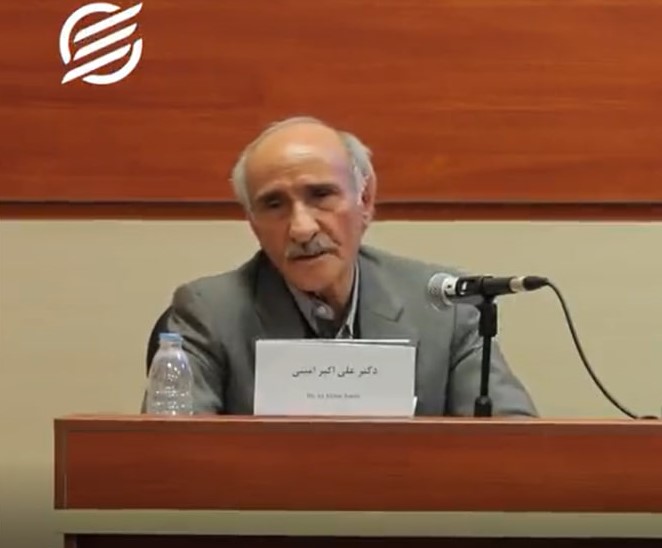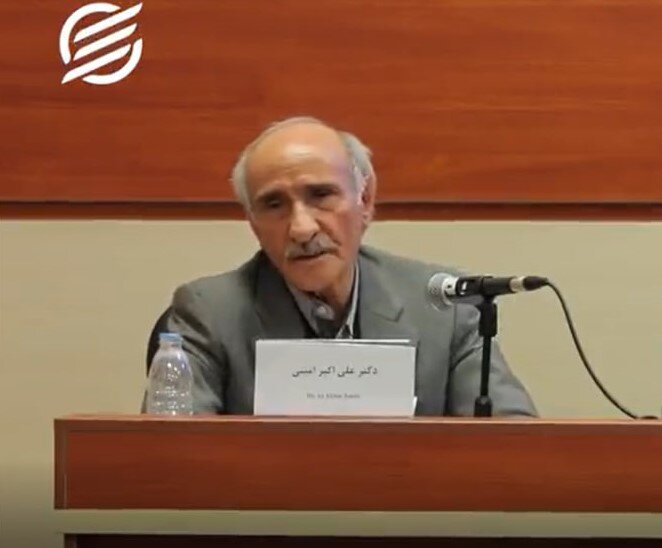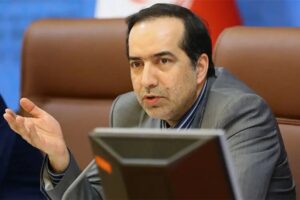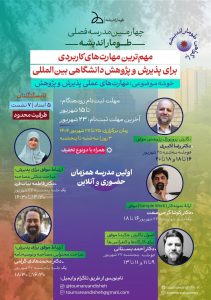Forozan Asif Nakhai: Islamic fundamentalists or Salafis came to power in Syria, what do they say? What beliefs do they have? And what are their intellectual positions in the field of governance? Hadi Darvishi and Ahmad Rezaei, in their joint research article, which was published in the Quarterly Journal of Humanities and Cultural Studies Research Center, Shammah 62, identified some indicators of fundamentalism from the point of view of scholars in the field of Islamic sciences, including textualism (Shariati, Malikian), violence in practice (Shariati). , Kadivar, Fayaz), not recognizing the developments of the modern world and opposing it (Aghajari, Noorbakhsh, Fayaz, Malekian) seizing political power to implement the law (Malekian, Kadivar, Sirajzadeh), presenting a single interpretation and as a result anti-diversity and pluralism and dogma (Malkian, Baghi, Azad Aramaki), elimination of the competitor (Azad Aramaki), defender of the mass society (Kadivar), retrospect (dehistoricization) They know sectarian behavior (Etmadfard), pureness (Paketchi).
Islamic fundamentalists are also called Salafis. The Salafis take their narrations directly from Ahmad Ibn Hanbal (born 241), Ahmad Ibn Taymiyyah (born 728), Ibn al-Qayyim al-Jawziyya (born 751) and Muhammad Ibn Abd al-Wahhab Tamimi Najdi (born 1115-1206). Salafism became a political form and structure after Muhammad bin Abdul Wahhab, and his alliance with Muhammad bin Saud, the founder of Al Saud rule in Saudi Arabia, accelerated this process.
Mr. Najafi bequeathed that after me, not my children, but he should be the authority of imitation. When he made this will, he said to Morteza Ansari, Ashikh, remember that Islam is a religion of ease and tolerance, that is, Islam is a religion of tolerance and not bigotry.
But Islamic thinkers in relation to Syria consider Ibn Taymiyyah more effective than other Salafi scholars in the formation of Salafi currents of thought in Syria. Ibn Taymiyyah, one of the spiritual fathers of Islamic fundamentalism, was seven years old when he left Haran with his father and three brothers in 1269 AD. This city was completely destroyed after the Mongol attack. Ibn Taymiyyah’s family migrated to the city of Damascus in present-day Syria, which was under the Mamluk dynasty at that time. Ibn Taymiyyah advised people to avoid celebrating Nowruz and Mehrgan, and he believed that those who celebrate these days will find themselves among the irreligious and infidels in the Day of Resurrection. He also forbade Muslims from worshiping in Iran before Islam and said: Do not learn the terms of Ajam and do not enter their temples on the day of Eid of the polytheists (Zoroastrians).
The Mamluk expedition to Kaserwan to fight the Shiites was based on Ibn Taymiyyah’s fatwa, which considered the war with the Shiites more important than the war with the Crusaders and the Mongols because “they are internal enemies and the evil of their survival is more harmful than their killing”. It was against the Shiite, Alawite, Maronite and Druze people of Kaserwan, Byblos and Al-Jard mountains in Lebanon, who in 1292, 1300 and It was done in 1305. These people had not submitted to any central authority throughout history. The characteristic of Ibn Taymiyyah and his intellectual companions is that they are always stuck in sectarianism, and their thoughts cannot be transformed into a unity in which collective reason is the decision-maker, except in the form of a sect. From an intellectual point of view, experts consider this axis to be the main cause of instability in Syria after Bashar al-Assad, which Syrian jihadist groups, inspired by Hassan al-Banna, Seyyed Qutb, Muhammad Qutb, and the Muslim Brotherhood movement, strive to be the largest Islamist movement in the Arab world. implement their teachings especially in this country. The teachings that the Muslim Brotherhood wanted to implement in Egypt before were severely suppressed by the rulers of this country. Teachings whose anti-colonial aspect is very strong. In this regard, the book “Muslim Brotherhood” by Ishaq Musa al-Husseini expresses important points about its origin and history.
However, in the speech of Dr. Ali Akbar Amini, which was delivered by the Faculty of Political Science of Tehran University and published by Eco Iran channel, the factor of fundamentalism is given more originality than the fight against colonialism in the Muslim Brotherhood and other fundamentalist forces. He considers fundamentalism to be the most important problem in the region. He says: “In my opinion, radicalism, fundamentalism, and extremism will be the biggest scourge of the region in the not too distant future. It destroys both internally and externally, and it also damages relationships. The point is that this speech was given before the fall of Bashar al-Assad in Syria.

Dr. Ali Akbar Amini
Definition of fundamentalism
In the definition of fundamentalism, Amini says: “Fundamentalism is a biased, strict, ideological and one-dimensional reading of religion, which is based on a term that the famous Tunisian Islamologist Mohamed Talebi proposed, and that term is “ideological dead leaf”. In short, I have to say a few words about prejudice here. Prejudice in ideology and in the reading and perception we have of religion in our region and naturally not only us Iranians. As far as the school and religion of Shia is concerned, the elders of this religion were not fundamentally fundamentalists and fanatics, we are their imperfect students and their ignorant followers. »
Eric Fromm said that when the third world became independent and destroyed colonialism, it suffered a worse calamity, what was that worse calamity? The same sentence of Eric Fromm is: “Freed from the rule of King George and captured by the king of bigotry.”
The will of Mohammad Hassan Najafi to Sheikh Morteza Ansari
He went on to point out the interaction of the Qajar period authorities and said: “During the Qajar period, Sheikh Mortaza Ansari was a free listener, following the lessons of the great authority of that time, Mr. Muhammad Hassan Najafi, in whose classroom Sheikh Mortaza Ansari was a free listener. He came because he had heard that he is a good authority and was hard to accept by Mr. Najafi. Mr. Najafi bequeathed that after me, not my children, but he should be the authority of imitation. When he made this will, he said to Morteza Ansari, Ashikh, remember that Islam is a religion of ease and tolerance, that is, Islam is a religion of tolerance and not bigotry.
Amini added: “But Muslims, especially in the last hundred years, planted a bitter seed, the founder of which was Hasan al-Banna, the intellectual leader of the Muslim Brotherhood, and they led the flow of Muslims to the current direction. We may say that this fundamentalism is a good thing as far as it goes in the fight against the West and Westernization and secularism and the like, but we have to examine what are its final consequences in domestic and foreign relations?
Eric Fromm’s answer
In response to the question of what internal and external consequences fundamentalism has, this university professor pointed to Eric Fromm’s point of view and said: “Eric Fromm said that when the third world became independent and destroyed colonialism, it suffered a worse calamity. What was the worse calamity? The same sentence of Eric Fromm is: “Freed from the rule of King George and captured by the king of bigotry.” Prejudice is a deadly disease. It destroys the individual, society and internal and external relations. Now name it whatever you want. “Extremism, or in Arab terms, tefiyyah, sectarianism, radicalism, and any other name.”
Amini added: “In our time, this phenomenon has become much more dangerous than before and during Hassan al-Banna’s time. And to recognize it, we have to go forward with historical insight, which is unfortunately greatly weakened in our faculties. Since yesterday, I listened to some of the talks, incorrect historical documents and false propositions due to weak historical insight were raised in the discussions. In the same faculty and in the same room, we had a class with Mr. Dr. Enayat and Mr. Dr. Sheikhul-Islami. In the history that they taught, these issues that I am hearing now did not exist in it.”
Fitna Kabri
Emphasizing that “we must find a correct historical vision of ourselves, our region, the Middle East and West Asia”, Amini said: “If we achieve this vision, we will find out that at the beginning of the history of Islam, a term called Fitna Kabri was introduced.” . Fitna-e-Kabri, which means the creation of different categories that occurred after the death of the beloved Prophet of Islam. The inheritors of this great sedition were first the Khawarij and then the Ismaili devotees.
In response to the question, “Has a cure for this disease been found?”, this university professor said: “Yes, it has been found, the cure for fighting against fundamentalism, extremism and radicalism was found by Ibn Muqfa’a at the very beginning, and after him by Khwaja Nizam Mulak Tusi and his two assistants, Imam Muhammad Ghazali and Jovini, strengthened this line. They named it the strategy of moderation in the sense that excesses and excesses were prevented based on this strategy, and under the shadow of this policy, Khwaja Nizam al-Mulk was successful.
Alp Arsalan, you saw him go round
Who gave them status and raised them from Rifat to Goron? They themselves, who were some of the desert tribes; Khwaja Nizam al-Mulk and Ghazali gave them greatness under the shadow of the strategy of moderation and avoiding excesses and excesses.
Ibn Muqafa found the solution to fight against fundamentalism, extremism and radicalism at the very beginning, and after him, Khwaja Nizam al-Mulk Tusi and his two assistants, Imam Muhammad Ghazali and Jovini, strengthened this line. They also named it the strategy of moderation, meaning that excesses and excesses were prevented based on this strategy, and under the shadow of this policy, Khwaja Nizam al-Mulk was successful.
The fundamental problem of fundamentalism
Amini went on to emphasize that “if fundamentalism succeeds in destroying Israel and the West, it will eventually kill itself and destroy itself” and said: “So we must stop it before it’s too late, Saadi’s poem is an example of that:
I heard you raised sheep
Escape from the mouth and hands of the wolf
Rub a knife in his throat at night
The soul of a sheep was heard from him:
Who kidnapped you from the clutches of the wolf
After all, I saw that you were a wolf
Wherever they are, they become the wolves of the society and if they are not stopped, they will bring the region to this day.”
Criticism of the thoughts of intellectuals and Makhund Khorasani’s view on the establishment of religious government
Amini continued: “Some people in our country think that the victory of Islamic groups in Egypt will cause great changes. When the Muslim Brotherhood led by Morsi won over Mubarak, many, including some intellectuals, celebrated wrongly. Mehrnameh published a special issue about this, and some of our famous professors wrote in this section that it was good, the dictator left and Mohammad Morsi came. And it is strange that we are very quick to judge. We can’t wait to see where things go before we judge. This is despite the fact that the arrival of Mohammad Morsi and groups like him is a poison and a disaster for all countries, including Iran. If the Brotherhood ruled in Egypt, what good would it do for us?”
He added: “Makhund Khorasani said that if we establish an Islamic government, it has a fundamental problem, and that is that others will learn from us, and then the war of religion against religion will begin and Muslims will die, and he is almost right. is The great pest of the region is not the West at all. In my opinion, the great plague of the region in the not so distant future is radicalism, fundamentalism and extremism. It destroys both internally and externally, and it also damages relationships.
In the words of Malik Sharai Bahar:
But what should we do, our fire is in our liver
Therefore, the main issue is this, and we must say this to the fundamentalists:
Joy Rana’s presidency will not open anything from this handful
A Muslim from Salman Joy Dard Din Zaboodarda
Read more:
How did extremism grow in the Islamic world? / Relation of Jihadi Salafism with modern tools and technology / Jihadi Salafism as a reaction to the social challenges of modernity
Who are the selfies?
216216
منبع: www.khabaronline.ir








